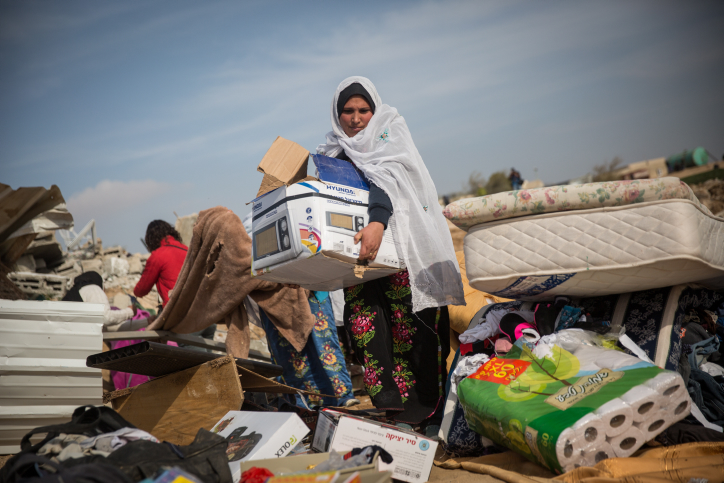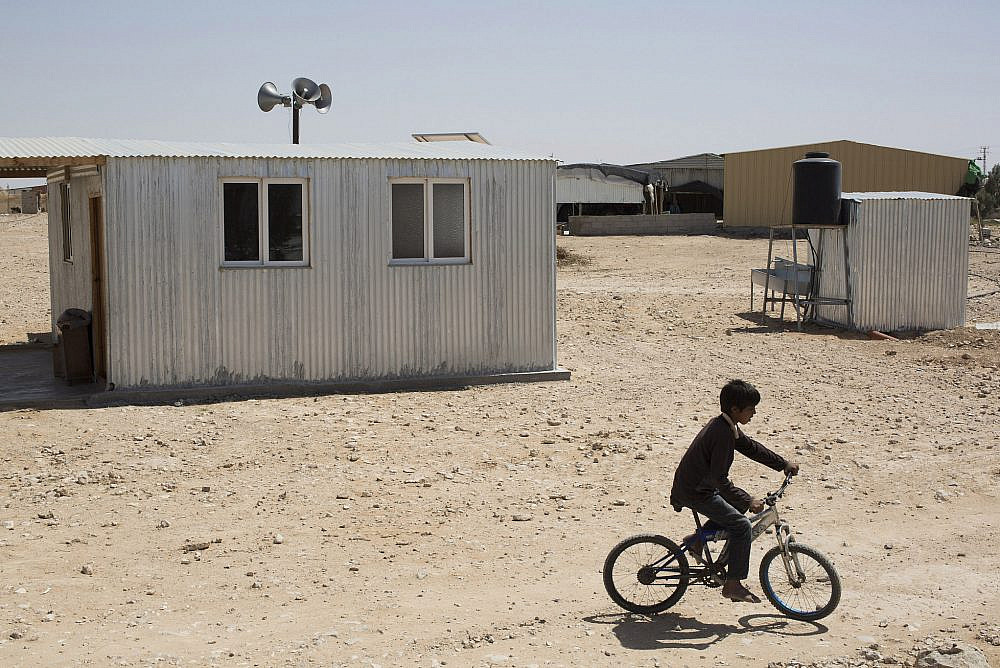Palestinian students in Israel are being disproportionately disadvantaged by the switch to remote online learning in light of the coronavirus pandemic, according to a Supreme Court petition filed on Sunday by the Palestinian human rights group Adalah and other NGOs.
The petition, which cites figures from the Follow-Up Committee for Arab Education, notes that around half of Palestinian students in the country are unable to connect to online classes, while roughly a third do not have access to a computer or tablet. In unrecognized Bedouin villages in the Naqab/Negev, the situation is even worse.
The appeal seeks to compel the Israeli government to ensure that students in the Naqab are given the means to access online learning, and that homes in unrecognized Bedouin villages be connected to the internet immediately.
More than 50,000 students in the Naqab’s 48 villages, recognized and unrecognized, have been cut off from their studies since schools shuttered across the country nearly a month ago and shifted to distance learning. The unrecognized villages in particular are already facing a potential humanitarian disaster in the face of the novel coronavirus, due to their lack basic infrastructure such as electricity, water, and sanitation.
Just over half of the affected students live in 37 unrecognized villages, while the remainder live across 11 recognized villages. Despite repeated requests from Adalah, the Follow-Up Committee for Arab Education, and other groups, the Israeli Education Ministry has so far failed to ensure that these students are able to continue their studies uninterrupted.
The petition argues that this disruption to Arab students’ studies, which is expected to continue until at least the end of the academic year, violates their right to education and is likely to increase the existing socioeconomic disparities between their communities and the rest of the population.

According to Adalah, the pandemic has “revealed the state’s tendency to ignore the existential needs of residents of Arab-Bedouin villages at normal times.” Israel’s “persistent refusal” to connect the unrecognized villages to basic infrastructure, Adalah adds, has blocked students there from accessing education under pandemic conditions.
Although the petition includes several villages that have been recognized by the state, Adalah noted that their change of status did not halt the “severe discrimination” against those communities. The Education Ministry is aware of the serious gaps, but “seemingly failed to take them into account” while creating its contingency plans for the pandemic, charged the group.
Providing computer and internet access for Arab students is crucial not only during the pandemic, but also for “the day after,” the Follow-Up Committee for Arab Education said in a statement. By normalizing the use of digital tools in response to the coronavirus lockdown, access to those resources will remain important even once the emergency has passed, said the Committee.
The disadvantages currently faced by these students, the Committee emphasized, is rooted in “discriminatory policies, which have seriously affected equality of education for Arab children and which are damaging their future in all walks of life.”
“We entered this crisis with profound educational gaps between Jews and Arabs,” said Dr. Sharaf Hassan, the head of the Committee. “[Arab students] will pay the price, because others will continue to advance in their studies. This increases the likelihood that they will drop out of regular education, and after that higher education.”
A version of this article was originally published in Hebrew on Local Call. Read it here.


